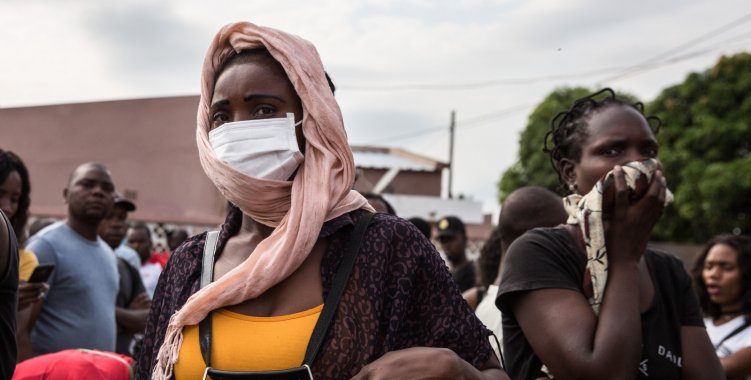The circular of the National Directorate of Public Health of the Ministry of Health of Angola, which also encourages health professionals from the national public and private system to wear masks, calls on citizens to resort to this protection object when they are on the street and in workplace.
The masks can be manufactured locally, explains the circular, "using two rectangles of overlapping cotton fabric 25 cm (centimeters) by 15 cm in size, and placing strips of fabric or elastic to tie behind the head".
According to the circular, hands should be washed with soap and water or disinfected with gel alcohol, before putting on the mask and after removing it, without touching the front of the mask.
While handmade masks, made of cloth, preferably cotton and reinforced in two layers, can be reused, surgical ones must be eliminated daily.
"The mask should be removed if it is dirty, wet or damaged", says the circular, advising the population to prepare a solution with four teaspoons of bleach per liter of water and then iron it, before using the handmade mask.
Angola has so far recorded the occurrence of 19 positive cases, with five recovered patients, all referring to citizens from countries with circulating the virus, which have already caused two deaths.
The resident coordinator of the United Nations in Angola, Paolo Balladelli, encouraged, on Tuesday in Luanda, the use of masks for the prevention of covid-19, especially in musseques, where social distance is "difficult or impossible".
Paolo Balladelli, who was received by President João Lourenço, considered that "having an obstacle in the face allows to decrease viral load, to decrease exposure".
"If we think, for example, in environments such as musseque, where social distance is practically difficult or impossible, then masks could make a difference and complement efforts for physical distance," he added.
For Paolo Balladelli, the protection of health personnel is also an important element, as it has already been proven in countries with severe epidemics, that they "can not only get sick themselves, but also transmit the disease to other healthy people".







